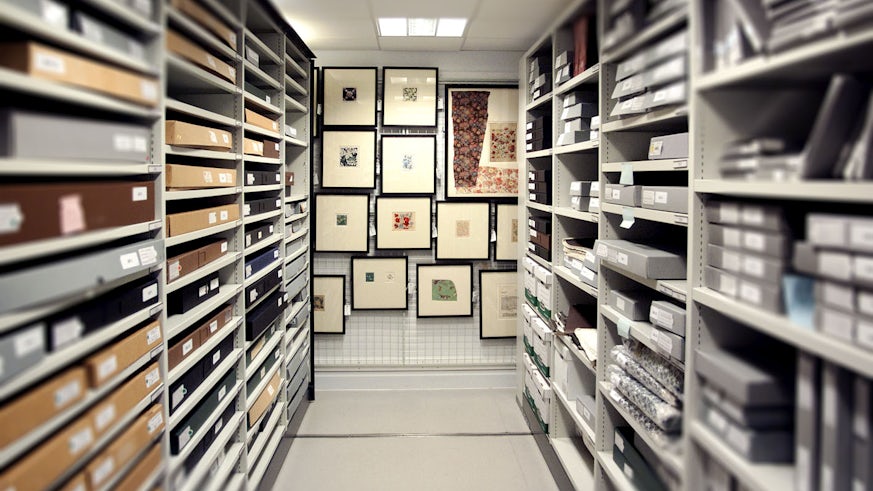Conservation and the Climate Crisis
24 January 2023

Cardiff conservators design training for practical implementation in museums
Conservators at Cardiff University designed and delivered an innovative technical and advocacy based course enabling museum staff to make practical changes in the heritage sector.
With conversations ongoing for the past decade about how to develop a more environmentally sustainable museum practice, Professor of Conservation Jane Henderson and Reader in Conservation Phil Parkes in the School of History, Archaeology and Religion resolved to create a practical course with the planet in mind.
Preventive conservation, the act of caring for objects has always been embedded within conservation. Whilst some in conservation engage with the material qualities of the objects to return them to stability, preventive conservation engages with the environment and context in which an object is used to create conditions to enable its use over the long term.
Understanding the impact of environmental parameters such as light, humidity or temperature on the stability of materials helps those responsible for collections care to make judgements about how best to use those objects whilst retaining their value into the future.
The course provides an introduction to agents that cause deterioration of museum and cultural heritage objects. Participants also examine a range of strategies, from technical to managerial to understand and modify conditions such as light, temperature and humidity to create acceptable levels of care for collections.
Significantly, the course facilitates simple action plans and reporting to ensure recommendations are both accurate and influential, with minimum impact on energy consumption and related climate impacts.
The resulting Managing Environmental Monitoring course was offered to Museum professionals from across the UK in summer 2022. Organised by West Dean College of Arts and Conservation the four-day course is ground-breaking with its focus on arming delegates with advocacy skills to support their technical ambitions.
Course delegate Emma Shaw went on to develop a project designed to modify climate control systems in the museum collections store at the Museum of Domestic Design (MoDA) based on what she learned.
Preventive conservation officer at MoDA at Middlesex University, she explained: ‘Attending the course gave me the confidence and skills to properly interrogate current practices and investigate methods to optimize existing resources in order to develop a more sustainable approach to preserving our collections. It also provided the tools to effectively communicate the relevance of this work amongst museum colleagues, and from there, out to our wider University community.’
MoDA Collections Manager, Zoe Hendon added:
‘Climate activists have recently made news headlines by throwing soup at Van Gogh’s Sunflowers, aiming to draw attention to the climate crisis by posing a threat to cultural objects that we collectively hold dear. There is clearly no future heritage in a burning world, but equally it is hard to accept that the very principle of saving our heritage is in conflict with saving the planet. Like many in our sector, we are committed to doing our bit to reducing energy consumption in order to tackle the climate crisis and rising fuel costs and welcomed this practical and thought-provoking intervention.’
The museum has received funding from the Association of Independent Museums to undertake investigations to examine the efficacy of existing storage furniture to enable a reduction in energy use without compromising protection of their unique collections following the questions and interventions considered in the course.
Co-course designer, Professor Henderson has been advocating for sustainable heritage practice, including publications. She said:
‘At a time when climate activists have drawn attention to the real and present threat of climate change to our world and our heritage, there is no better time to consider how museums might reduce energy consumption and effectively preserve our precious cultural objects in museum collections. We designed this course with the aim of supporting colleagues across the sector to make planet and climate-friendly choices without compromising the preservation of our common heritage. It’s so encouraging to see practical local initiatives making an impact.’

